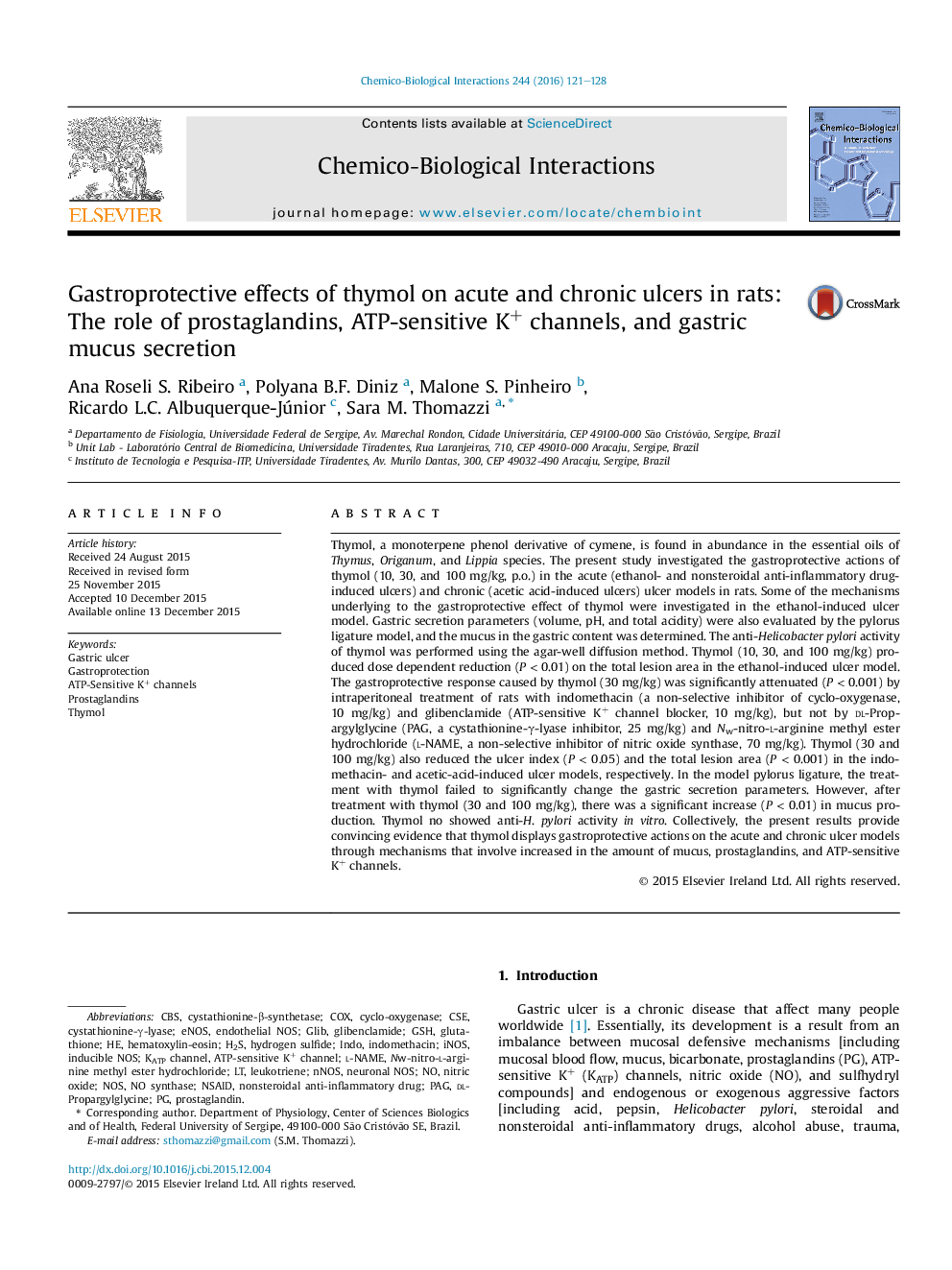| Article ID | Journal | Published Year | Pages | File Type |
|---|---|---|---|---|
| 2580043 | Chemico-Biological Interactions | 2016 | 8 Pages |
•We evaluated the gastroprotective activity of thymol in rats.•Thymol is able to reduce the acute and chronic ulcers induced by different agents.•Thymol modulates the inflammation and it increases mucus secretion.•We are suggesting the involvement of prostaglandins and ATP-sensitive K+ channels.
Thymol, a monoterpene phenol derivative of cymene, is found in abundance in the essential oils of Thymus, Origanum, and Lippia species. The present study investigated the gastroprotective actions of thymol (10, 30, and 100 mg/kg, p.o.) in the acute (ethanol- and nonsteroidal anti-inflammatory drug-induced ulcers) and chronic (acetic acid-induced ulcers) ulcer models in rats. Some of the mechanisms underlying to the gastroprotective effect of thymol were investigated in the ethanol-induced ulcer model. Gastric secretion parameters (volume, pH, and total acidity) were also evaluated by the pylorus ligature model, and the mucus in the gastric content was determined. The anti-Helicobacter pylori activity of thymol was performed using the agar-well diffusion method. Thymol (10, 30, and 100 mg/kg) produced dose dependent reduction (P < 0.01) on the total lesion area in the ethanol-induced ulcer model. The gastroprotective response caused by thymol (30 mg/kg) was significantly attenuated (P < 0.001) by intraperitoneal treatment of rats with indomethacin (a non-selective inhibitor of cyclo-oxygenase, 10 mg/kg) and glibenclamide (ATP-sensitive K+ channel blocker, 10 mg/kg), but not by dl-Propargylglycine (PAG, a cystathionine-γ-lyase inhibitor, 25 mg/kg) and Nw-nitro-l-arginine methyl ester hydrochloride (l-NAME, a non-selective inhibitor of nitric oxide synthase, 70 mg/kg). Thymol (30 and 100 mg/kg) also reduced the ulcer index (P < 0.05) and the total lesion area (P < 0.001) in the indomethacin- and acetic-acid-induced ulcer models, respectively. In the model pylorus ligature, the treatment with thymol failed to significantly change the gastric secretion parameters. However, after treatment with thymol (30 and 100 mg/kg), there was a significant increase (P < 0.01) in mucus production. Thymol no showed anti-H. pylori activity in vitro. Collectively, the present results provide convincing evidence that thymol displays gastroprotective actions on the acute and chronic ulcer models through mechanisms that involve increased in the amount of mucus, prostaglandins, and ATP-sensitive K+ channels.
